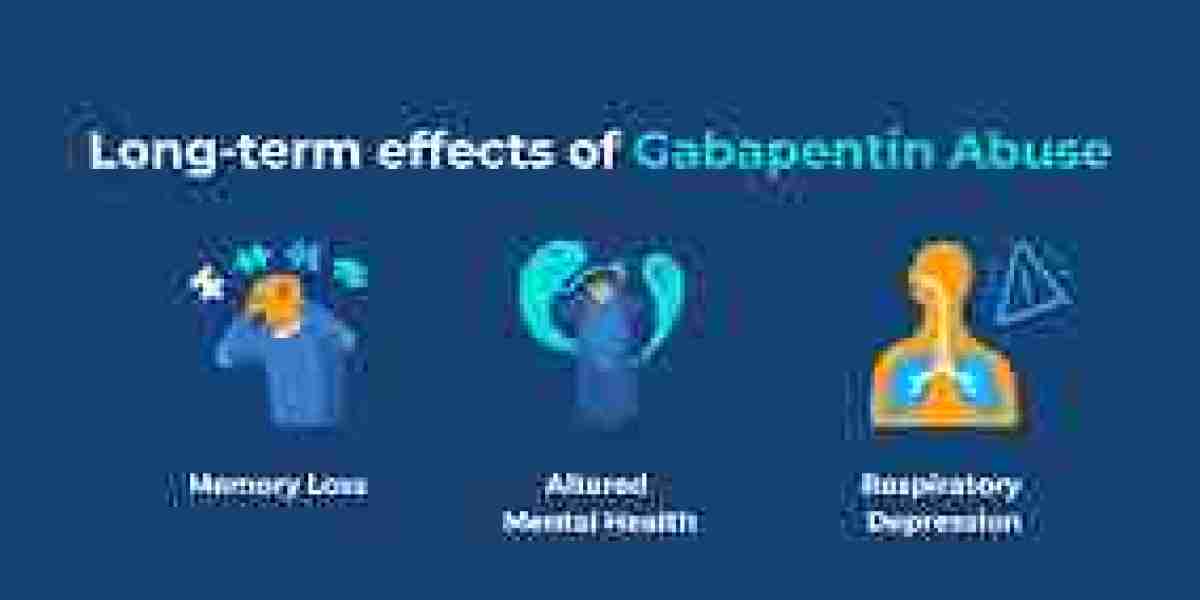Introduction: Gabapentin 600 mg and the Cognitive Concern
Gabapentin, sold under the brand name Neurontin, often enters the conversation when individuals seek relief from nerve pain, seizures, or even anxiety. While its therapeutic benefits are well-documented, users taking Gabapentin 600 mg over the long term sometimes report concerns about memory problems. This growing concern invites a crucial question: Can long-term use of Gabapentin 600 mg impact memory or cognitive function?
Let’s explore what science, experience, and medical observations reveal about the long-term use of Neurontin and its potential effects on memory.
Understanding Gabapentin 600 mg: What Does It Do?
Gabapentin 600 mg acts on the nervous system, specifically targeting overactive electrical signals in the brain. Although it was originally developed to treat epilepsy, doctors frequently prescribe it for:
Peripheral neuropathy
Postherpetic neuralgia
Restless legs syndrome
Fibromyalgia
Anxiety (off-label)
Unlike other drugs, Neurontin does not work through the usual pain or anti-inflammatory pathways. Instead, it modulates calcium channels in the brain, calming overexcited nerve activity. That unique mechanism helps control chronic nerve pain and seizures—but it may also alter brain function in other, unintended ways.
How Gabapentin Affects the Brain
Gabapentin does not directly affect neurotransmitters like dopamine or serotonin. Instead, it binds to the alpha-2-delta subunit of voltage-gated calcium channels. This action reduces the release of excitatory neurotransmitters, helping calm neural activity.
While this dampening effect can reduce symptoms of nerve pain or anxiety, it can also influence mental clarity. Users frequently report side effects such as:
Drowsiness
Dizziness
Difficulty concentrating
Forgetfulness
When taken for extended periods at higher doses, such as 600 mg or more daily, these cognitive side effects may become more noticeable or persistent.
User Experiences: Memory Issues on Neurontin
Many long-term users of Neurontin share similar stories:
“I started on Gabapentin 300 mg for nerve pain, and it worked well. But after a dose increase to 600 mg, I began forgetting appointments, misplacing things, and struggling to recall words.”
“My memory felt like it had holes in it. I couldn't follow long conversations or remember what I did a few days ago. It started to worry me.”
These anecdotal reports align with scientific observations, suggesting a potential link between Gabapentin and mild cognitive decline, especially when used long-term at higher doses.
What Do the Studies Say About Gabapentin and Memory?
Scientific research offers mixed but compelling insights:
A 2010 study in Clinical Neuropharmacology examined the cognitive effects of Gabapentin and found that some patients experienced slowed information processing and decreased verbal memory.
A 2020 systematic review evaluated cognitive changes associated with antiepileptic drugs. Gabapentin showed milder cognitive effects compared to older medications, but still caused issues like forgetfulness and word-finding difficulties in some patients.
Long-term use, especially in elderly populations, correlates with a higher risk of confusion, memory impairment, and falls, largely attributed to the sedative effect of Gabapentin.
These studies suggest that while Neurontin isn’t classified as a major cognitive impairing drug, it may contribute to subtle memory issues in certain individuals.
Who Is Most at Risk?
Not everyone who takes Gabapentin 600 mg will experience memory problems. However, certain groups are more vulnerable:
Older adults: They metabolize medications differently and may be more sensitive to cognitive side effects.
People with existing cognitive decline: Gabapentin may worsen memory or slow cognitive performance in these individuals.
Patients on high doses or multiple medications: Drug interactions can amplify side effects.
If you belong to one of these groups, discussing dosage and side effects with your healthcare provider becomes even more important.
Signs That Gabapentin May Be Affecting Your Memory
Gabapentin-induced memory issues may present subtly. Watch for:
Forgetting daily tasks or appointments
Difficulty recalling names or words
Feeling mentally “foggy”
Losing focus during conversations
Repeating the same questions or stories
If these signs persist or worsen, consider re-evaluating your medication plan with your doctor.
Can You Prevent Memory Problems While Taking Neurontin?
You can take proactive steps to protect your cognitive health while using Gabapentin 600 mg:
Use the lowest effective dose: Don’t increase your dose without clinical guidance. Lower doses may carry fewer cognitive side effects.
Follow a consistent routine: Structure, reminders, and habit tracking can help compensate for memory gaps.
Get enough sleep: Gabapentin can interfere with REM sleep, which is critical for memory. Prioritize sleep hygiene.
Avoid alcohol: Alcohol can worsen Gabapentin’s sedative and memory-related side effects.
Exercise your brain: Puzzles, reading, learning, and problem-solving activities help maintain cognitive sharpness.
Is Memory Loss Reversible After Stopping Gabapentin?
The good news is that many people report cognitive improvement after stopping or lowering Gabapentin. Once the drug clears from your system, your brain may return to its previous level of function, g—though this varies from person to person.
In most cases, memory problems fade within a few weeks after tapering off Neurontin. However, some users may experience prolonged symptoms, especially after years of high-dose usage.
Never stop taking Gabapentin abruptly. Sudden withdrawal can cause seizures or heightened pain. Always taper under medical supervision.
Alternatives to Gabapentin for Long-Term Use
If you're concerned about memory loss and want to consider options beyond Gabapentin, you must speak with your healthcare provider. That said, there are various behavioral and non-medication-based approaches to managing nerve pain, anxiety, or seizures, such as:
Cognitive Behavioral Therapy (CBT)
Nerve stimulation therapy
Physical therapy and rehabilitation
Mindfulness and meditation practices
Dietary and lifestyle adjustments
These methods may not fully replace Neurontin for everyone, but can complement its use or aid in tapering down the dosage.
When Should You Talk to Your Doctor?
Reach out to your healthcare provider if:
You notice significant changes in memory, focus, or clarity
You feel mentally “slowed down” since starting Gabapentin
Your daily activities or relationships are affected by forgetfulness
You're considering stopping or reducing your Gabapentin dose
Document your symptoms, including when they started, how they’ve changed, and how they affect your quality of life. This will help your provider make informed decisions.
The Takeaway: Balance Relief with Awareness
Gabapentin 600 mg, or Neurontin, can dramatically improve the quality of life for those suffering from nerve pain or seizures. However, its long-term effects on memory deserve careful consideration. While not everyone will experience memory issues, it's important to remain aware of potential changes and advocate for your cognitive health.
Your brain matters as much as your body. Managing pain shouldn’t come at the cost of your clarity.
Final Thoughts: Can You Trust Gabapentin for the Long Haul?
Ultimately, the decision to continue using Gabapentin 600 mg hinges on a personal risk-benefit assessment. If it significantly reduces your pain or prevents seizures, that’s valuable. But if it clouds your mind, affects your relationships, or disrupts daily life, you deserve a better solution, or at least a better strategy.






